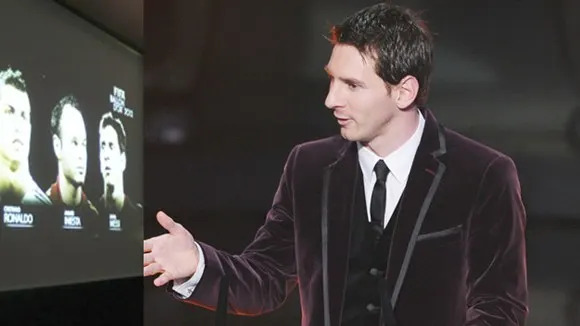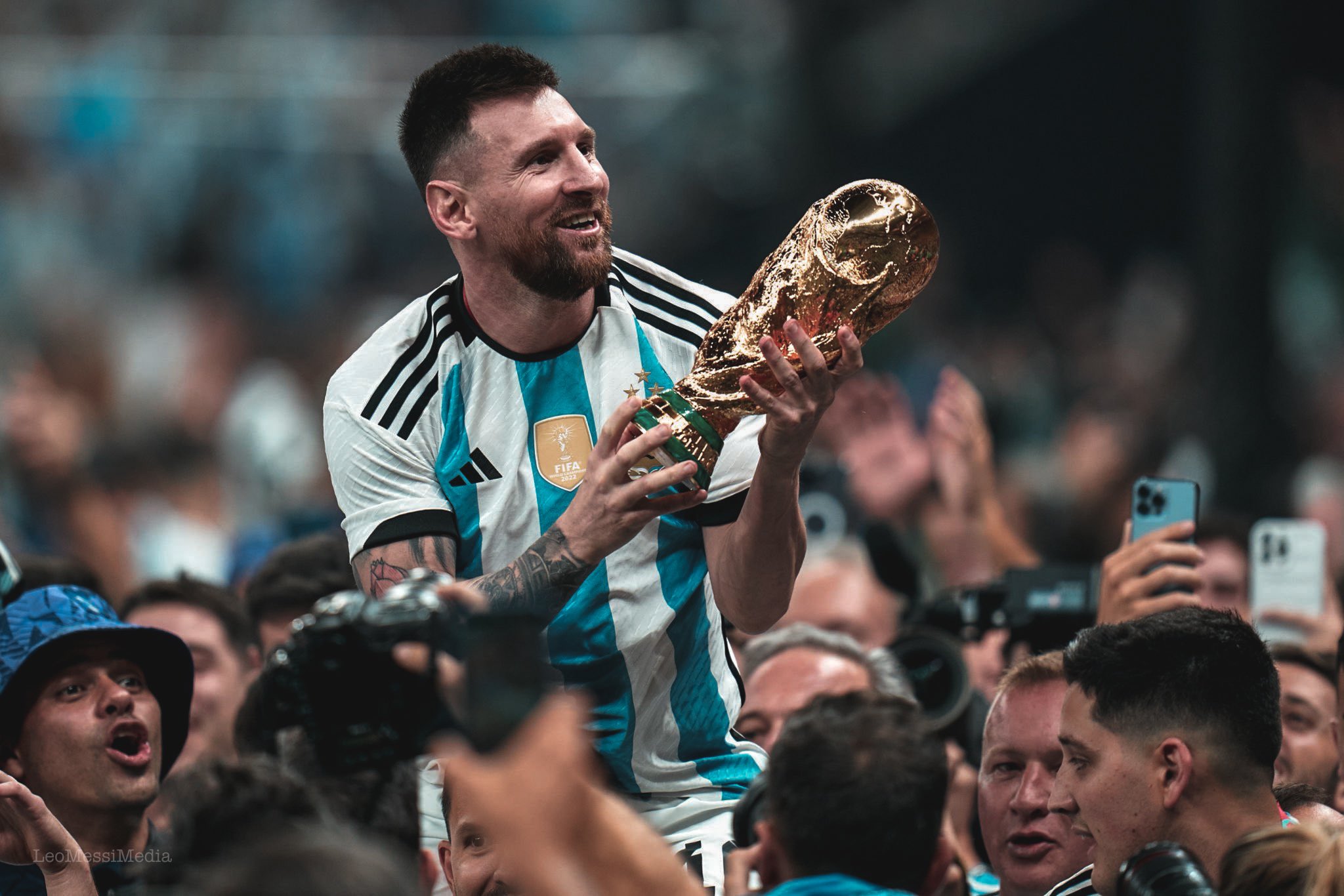There was a time when Galileo changed the truth about the earth. Today, Lionel Messi can change the truth about sports…

The Italian scientist Galileo Galilei was the first person to show that the earth rotates around the sun, not the other way around. This was more than 400 years ago. People believed that “the sun revolves around the earth” thousands of years ago. The above false astronomical fact was changed by the “father of modern astronomy,” who made the first full telescope in history. It was called “Spyglass.”
That was before people realized that the earth was not round. But researchers in ancient Greece and later scientists with more modern tools have proven that the earth is a sphere, which is what we all know now.
“The Galileo of football”
Truth is made by people; it shows up when a group of people all agree on an idea. But the truth doesn’t always stay the same; it can change.

There used to be a truth in football that everyone in the sports world knew: to win the Ballon d’Or, you had to win a big title, preferably with your national team. This fact is changing, though. If Galileo changed the old “sun-earth” truth, then Lionel Messi changed the golden truth in the world of football.
For example, Michel Platini, Johan Cruyff, Van Basten, and other greats had to win at least one big group title at the regional (EURO) or world (World Cup) level before they could win the European or FIFA Ballon d’Or. A player would almost win the Ballon d’Or if he played the best in this short event and was on the title team. This was especially true in years when there were big tournaments. In the years they first played, Marco van Basten (1992), Romario (1994), Matthias Sammer (1996), Zidane (1998, 2000), Ronaldo (fat) (2002), and Cannavaro (2006) all won the FIFA or European Ballon d’Or. it’s bright and on the team that wins the World Cup or EURO.

It’s no longer important to win the title.
But the successes and championships of the national team don’t have as much of an effect on who wins the Ballon d’Or. That is, the idea that “to win the Ballon d’Or, you must win a major title” is no longer true. No player who has won the Ballon d’Or since 2008 has also won a big national team event. This includes winners of the FIFA, Europe, and now the united Ballon d’Or. This change began with C. Ronaldo (2008), but Messi is known as the “Galileo of football.” The star player for Barcelona has won every Ballon d’Or award for the past three years. No matter what, the Argentine star didn’t do anything for the team during this time and even caused a lot of sadness. There have been three big events since 2008: one World Cup and two EUROs. Many giants have shined in these two venues, especially the Western great winners. Portugal. Spain.
When Messi and Barcelona won the Champions League twice in the three years he was king, there were two “deserving” QBVs. But Leo won the Ballon d’Or more than anyone else in 2010, even though he only won La Liga by a large margin. It is expected that Messi will win the Ballon d’Or for the fourth year in a row, even though he only won the “second-class title” King’s Cup in 2012. Galileo almost won in the past.
changed “truth” and got killed by the Vatican, but now he’s a great man. Many people now admire and even dislike Messi for “killing” football and changing the “truth” of QBV. But it’s possible that Messi will soon be a great man in the same way that Galileo was. This will happen when the idea that “a player who gets the Ballon d’Or must have a big team championship” is shot down and “ball The winner of the Ballon d’Or is the best person in the world.
Once upon a time, Galileo used the first telescope, Spyglass, to show that the earth moves around the sun. He also has better legs than any other football player, which is changing the way people think about football players.
Europe has been swept away by South America.
South America has won more Ballon d’Ors than Europe since 2002. This includes both the FIFA Ballon d’Or and the European Ballon d’Or. In particular, 11 Ballon d’Or were given to players from South America. This is only a 7 for Europe. Only South America has more players who have won the Ballon d’Or (4 times), if we only look at the years 2002–2009.
More and more, Leo wins with ease.
The polls will show if Messi deserves it or not. He won the France Football Golden Ball in 2009 with 473 points, 240 more than Ronaldo, who came in second with 233 points. It’s important to note that this is the biggest gap between the top two teams in the history of the European Golden Ball (1956–2009). In terms of vote percentage, Messi gets 32.93% (473 points out of 1436 points given out), which is 16.71% more than Ronaldo (16.22%).
When the Golden Ball belonged to FIFA in 2010, Messi was close behind Iniesta. The Argentine attacker got 22.65% of the votes, while his Barcelona partner got 17.36%. That’s a difference of only 5.29%. But Messi easily won in 2011 with 47.44% of the votes, beating Ronaldo in second place with 21.6% of the votes by 26.28%.

1. Liberian great George Weah won the Ballon d’Or in 1995. He was the first player from outside of Europe and the only player from Africa to win it.
1. Lev Yashin, a goalie from the former Soviet Union, is the only person to have won the Ballon d’Or (1963).
2. A country has only won all three Ballon d’Or awards twice before. In 1972, they were Franz Beckenbauer, Gerd Mueller, Gunter Netzer (Germany), and in 1988, they were Van Basten, Ruud Gullit, and Frank Rijkaard.
3. Johan Cruyff, Michel Platini, Marco van Basten, and Lionel Messi are the only players in history to have won the Ballon d’Or three times. But Messi and Platini were the only ones to win three years in a row.
3. The Ballon d’Or has only been given to three defenders in its history. And their names are Fabio Cannavaro, Matthias Sammer, and Franz Beckenbauer.
France and the Netherlands each have seven QBVs, making them the countries with the most. But Germany has five kings and queens, while the Netherlands only has three.
9. Barcelona has won nine Ballon d’Or, but it only has as many players as Milan and Juventus.